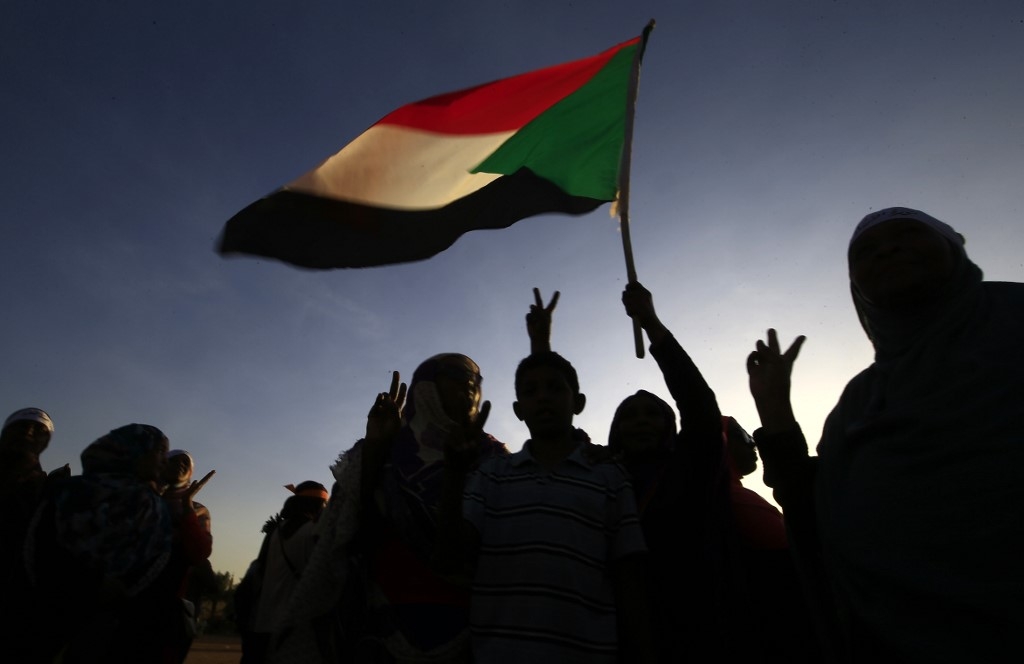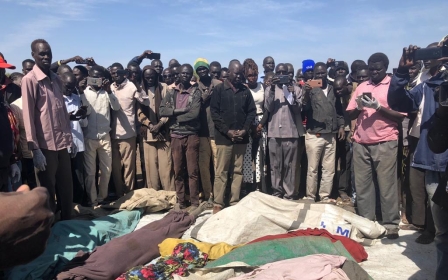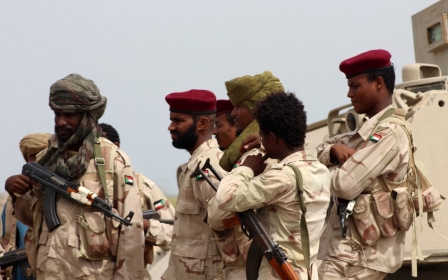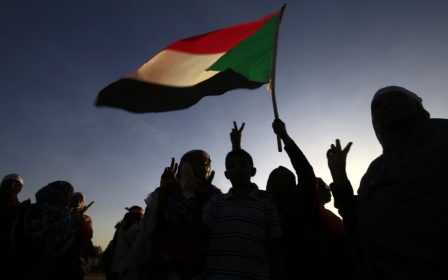Sudan transitional government to build new national army with rebel groups

Sudan's transitional government has pledged to build a new national army that aims to represent the country's diversity, according to a copy of a peace agreement seen by Middle East Eye.
The agreement was signed in Juba on Friday with the Sudan People's Liberation Movement-North (SPLM-N) group headed by Malik Agar.
Agar heads one of the two factions of the SPLM-N. The SPLM-N split into two groups after Abdul Aziz Alhilu, leader of the other SPLM-N faction, called for the creation of a secular state in Sudan.
This latest deal came after four months of marathon talks between the transitional government and different rebel groups that fought the former government of ousted president Omar Bashir.
The SPLM-N led by Agar was the first group to sign the framework deal, which opens the door for a possible peace deal by mid-February.
New MEE newsletter: Jerusalem Dispatch
Sign up to get the latest insights and analysis on Israel-Palestine, alongside Turkey Unpacked and other MEE newsletters
Under the agreement, the Blue Nile and South Kordofan regions, partly in the control of rebels, will be given special status and allowed to draw up their own laws.
Key parts of the agreement include granting equal citizenship rights to all citizens and adoption of local languages as a national language, in a move towards reconciliation between the different groups.
Calls for a national army
Copies of the agreement seen by Middle East Eye state that Agar's SPLM-N army would be integrated within the national army, with bases being agreed upon by a joint committee that is formed between the two sides.
"It's high time to form a real national army that represents the diversity of Sudan and work under a new military doctrine that distances itself from the politicization and discrimination," the agreement stated.
"Given the security situation in the region around Sudan and to complete the great objectives of the revolution, the national army, Rapid Support Forces and the armed movements have to restructure together the security and military sector and to build a national and professional army that can protect the higher interests of our nation."
The document also states that the two sides would work towards finalising a permanent ceasefire and the creation of a commission that looks into disarmament, demobilisation and reintegration (DDR).
Risk in failure to include Alhilu faction
Analysts, however, believe that the finalisation of a peace deal in the different fronts including Darfur, South Kordofan, Blue Nile and Eastern Sudan needs more time.
Ammar Awad Sharif, an analyst based in Khartoum, believes the framework has the potential for creating reconciliation between the two sides.
"This framework has opened the door for the final agreement, and three committees have been formed in order to put the final details of power-sharing, budgets and security arrangements," said Sharif.
He also noted that the two sides of the agreement have put into consideration the importance of a deal with the other faction of the SPLM-N headed by Alhilu to ease implementation of the agreement in the Blue Nile and South Kordofan areas.
However, political analyst Faisal Saad downplayed the agreement and believes it has many weaknesses as it does not have any big international guarantors as previous deals had.
Saad emphasised that any future agreement had to have the backing of Alhilu's SPLM-N faction, as it is militarily the strongest rebel group in the country.
"It is positive to have any breakthrough in the peace process, but given that SPLM-N Alhilu has the upper military hand, especially in South Kordofan, they could obstruct the peace process and lead to a confrontation between the two SPLM-N factions," said Saad.
"Undoubtedly the participation of the SPLM-N Agar faction will enrich the political dynamics in the country and improve the image of the transitional government in front of the transitional community.
"But two of the most powerful rebel groups - the Alhilu faction and Abdul Wahid Alnur's group in Darfur - are still away from the peace process."
Middle East Eye delivers independent and unrivalled coverage and analysis of the Middle East, North Africa and beyond. To learn more about republishing this content and the associated fees, please fill out this form. More about MEE can be found here.




